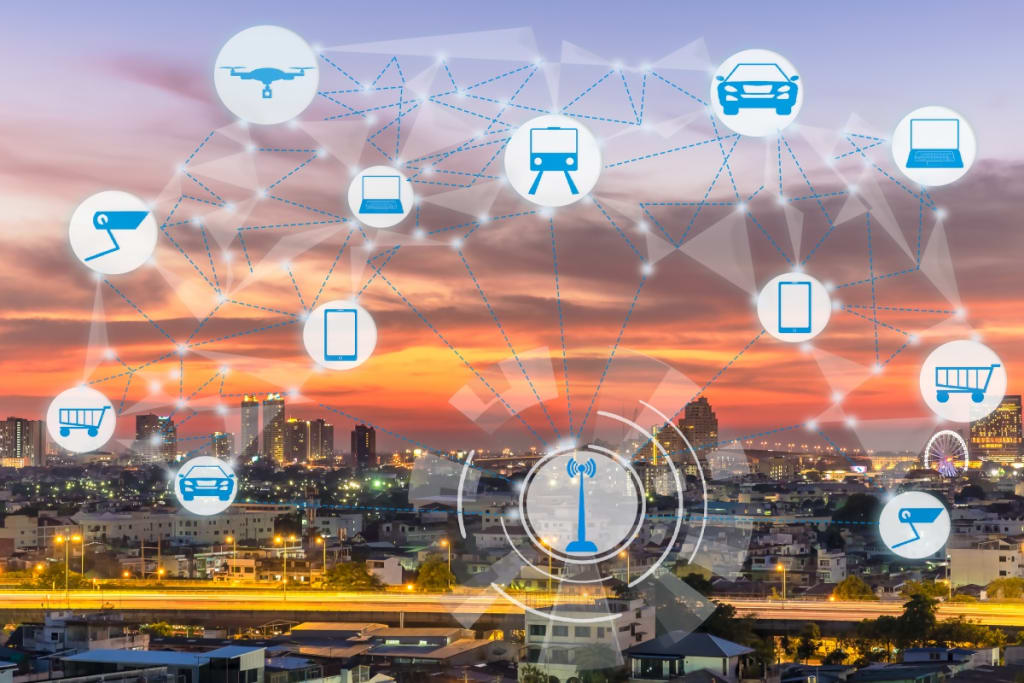The evolution of smart cities and their impact on our daily lives
From sci-fi to reality

Over the past few years, the world has seen a rise in the number of smart cities, and the trend shows no signs of slowing down. Smart cities use technology and data to improve the quality of life for their residents and to create a more sustainable and efficient urban environment. In this article, we will discuss the rise of smart cities and their benefits.
Smart cities are defined as urban areas that use technology and data to improve the quality of life for their residents. These cities use a variety of sensors and devices to gather data on everything from traffic patterns to air quality to energy usage. This data is then analyzed to create insights that can be used to improve city services and infrastructure.
One of the biggest benefits of smart cities is improved sustainability. By using data to optimize energy usage and reduce waste, smart cities can significantly reduce their carbon footprint. For example, the city of Barcelona has implemented a smart lighting system that uses sensors to detect when people are present and adjusts the level of lighting accordingly. This has resulted in a 30% reduction in energy consumption and a significant reduction in carbon emissions.
Smart cities can also improve the efficiency of city services. By using data to optimize traffic flow and reduce congestion, smart cities can reduce commute times and improve the overall quality of life for their residents. For example, the city of Amsterdam has implemented a smart traffic system that uses real-time data to optimize traffic flow and reduce congestion. This has resulted in a 10% reduction in travel time for commuters and a significant reduction in carbon emissions.
Another benefit of smart cities is improved safety and security. By using data to monitor crime patterns and identify potential threats, smart cities can improve public safety and reduce crime rates. For example, the city of Chicago has implemented a smart policing system that uses data analytics to identify areas with high crime rates and deploy resources to those areas. This has resulted in a significant reduction in crime rates in the city.
Smart cities can also improve the quality of life for their residents. By using data to optimize public transportation and improve access to city services, smart cities can make it easier for people to get around and access the resources they need. For example, the city of Singapore has implemented a smart transportation system that uses real-time data to optimize bus routes and reduce wait times. This has resulted in a significant improvement in the overall quality of life for residents of the city.
Smart cities can also create new economic opportunities. By using data to identify areas of growth and potential, smart cities can attract new businesses and industries to the city. For example, the city of San Francisco has implemented a smart city program that focuses on improving the city's technology infrastructure and supporting the growth of the tech industry. This has resulted in a significant increase in the number of tech companies and jobs in the city.
In addition to these benefits, smart cities can also improve the overall resilience of urban areas. By using data to monitor and predict natural disasters and other potential threats, smart cities can improve their ability to respond to emergencies and ensure the safety of their residents. For example, the city of Rio de Janeiro has implemented a smart disaster management system that uses data to predict and respond to natural disasters. This has resulted in a significant reduction in the impact of natural disasters on the city.
Looking to the future, the rise of smart cities is expected to continue. As technology continues to evolve, it is likely that we will see even more innovative uses of data and technology to improve urban environments. From the use of artificial intelligence to the Internet of Things, smart cities will continue to evolve and transform the way we live and work in urban areas.
In conclusion, smart cities are transforming the way we live and work in urban areas. By using technology and data to improve sustainability, efficiency, safety, and quality of life, smart cities are creating a more sustainable and equitable
About the Creator
On stop Tech-News
On stop Tech-News is a tech enthusiast and writer who provides expert analysis and insights to stay up-to-date in the fast-paced world of tech.






Comments
There are no comments for this story
Be the first to respond and start the conversation.